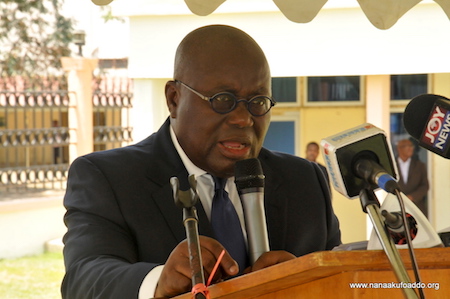I am deeply honoured by the invitation to participate in the law week celebration, which is in its 57th year. For the last 10 years, indeed, exactly today since March 16, 2006, the week has undertaken the commemoration of one of the great cases in Ghanaian history – Re Akoto. I want to thank the President of the Students’ Representative Council, Andrew Khartey, and his executives for this singular gesture. You have chosen a very relevant topic as the theme of this year’s law week – “Rethinking Justice Delivery in Ghana’s Democratic Development – and have managed to procure a distinguished jurist, the former Supreme Court Judge, Professor Samuel Kofi Date-Bah, to treat it.
I am sure he will do so with his customary brilliance. I had the privilege as Attorney General to present his name to the then President of the Republic, His Excellency John Agyekum Kufuor, and the then Judicial Council for his nomination to Parliament for its approval of his appointment to the Supreme Court, which Parliament duly did. I believe, and hope, most people would readily agree that I did a good job for the development of the law and the growth of the Supreme Court by that proposal. I will leave the topic in his capable hands, and spend the few minutes I have at this podium to make one or two comments about the seminal case of Re Akoto.
I use the word seminal to describe the significance of the case, not because you choose to celebrate it, which is admirable, but because that case illustrates, above all, the importance of the work we do as lawyers. There are some who describe us as parasites, without fully appreciating the critical contribution we make to the establishment of the rule of law in national development. Re Akoto expresses the reality of our situation. And that is its true significance.
Before the decision in Re Akoto in 1961, the Preventive Detention Act, passed in 1958, a year after our independence, had affected some one hundred or so detainees – largely activists of the Ga Shifomo Kpee and the National Liberation Movement, and a few senior figures of the Opposition such as, R.R Amponsah, Modesto Apaloo, Attoh Okine, Henry Thompson, Attoh Quarshie and Baffuor Osei Akoto, the Asantehene’s senior linguist and founder of the National Liberation Movement, who was the appellant in the celebrated case that bears his name. Between the time of the decision in 1961, after the Korsah-led Supreme Court unanimously upheld the constitutionality of the Act, and the overthrow of Kwame Nkrumah’s CPP government in 1966, five years later, the numbers of those who fell into the clutches of the Act rose from the hundred to over two thousand. There can be little doubt that the Supreme Court’s decision emboldened the CPP government to extend the widespread application of the Act. It was that which turned our nation into a one-party state with its negative consequences for the protection of individual liberty and the emergence of authoritarian rule in post-independent Ghana.
The history of our nation, I submit, would have been radically different if the Supreme Court had accepted the compelling and powerful submissions of the lawyer for the unsuccessful appellants, Joseph Boakye Danquah. Happily for the development of democracy and the rule of law in our nation, those submissions came to provide the basis for the new constitutional order that emerged in the post-1966 era. The Akufo-Addo Constitutional Commission, set up to draft proposals for the 2nd Republican Constitution, was heavily influenced by Danquah’s submissions in that case. It outlined the constitutional system that reflected much of his thinking. Express provisions were made for the separation of powers, with the Judiciary given express power to interpret and enforce the Constitution, and strike down legislation that offends its letter and spirit. Parliament was prohibited from enacting any law in the form of a one-party state or of preventive detention. Fundamental human rights were expressly protected by the Constitution under the authority of the Judiciary. The concept of limited government was expressly endorsed by the Akufo-Addo Constitutional Commission. Students of constitutional law know that the teachings of the 2nd Republican Constitution have, in the main, been reenacted in both the 3rd and our current 4th Republican Constitutions. That is the impact of Re Akoto.
So our work matters. It affects profoundly the ordering of our state. So we all, and especially you, the next generation of lawyers as your Director designated you, have a duty to remember that you have a special duty to our society and nation, a duty of integrity and intellectual honesty. That is the way forward for us in the 21st century, which is going to be the Ghanaian century, the century that will see the transition of the Ghanaian people from poverty into prosperity within the framework of democratic institutions under the rule of law.
Thank you and may God bless you.

